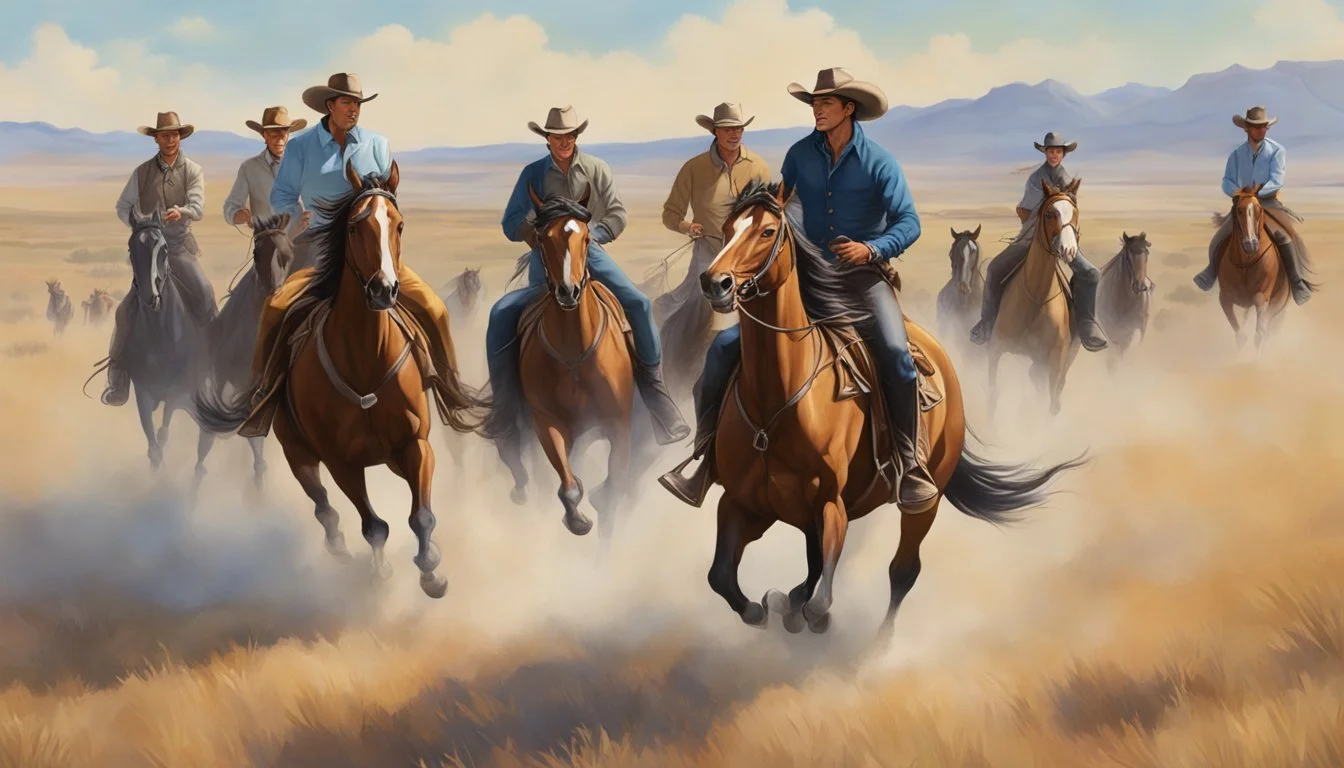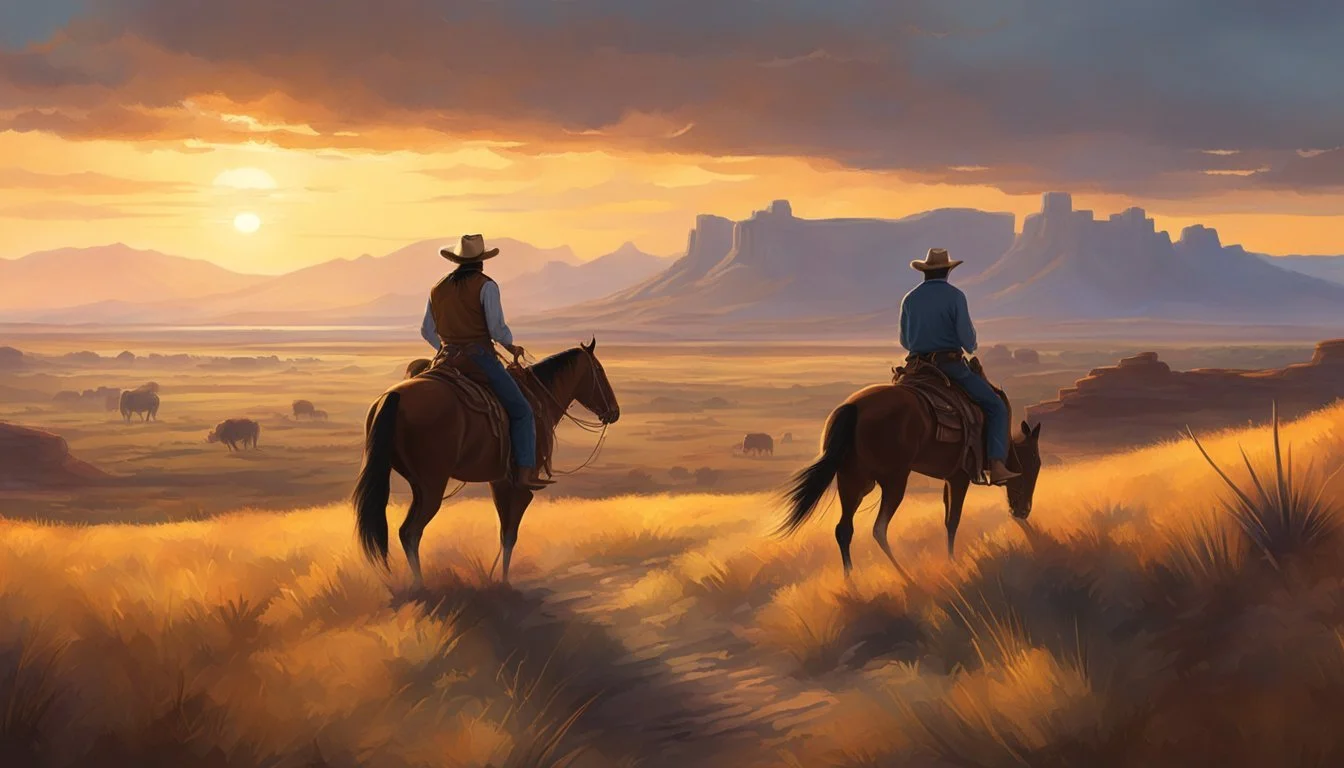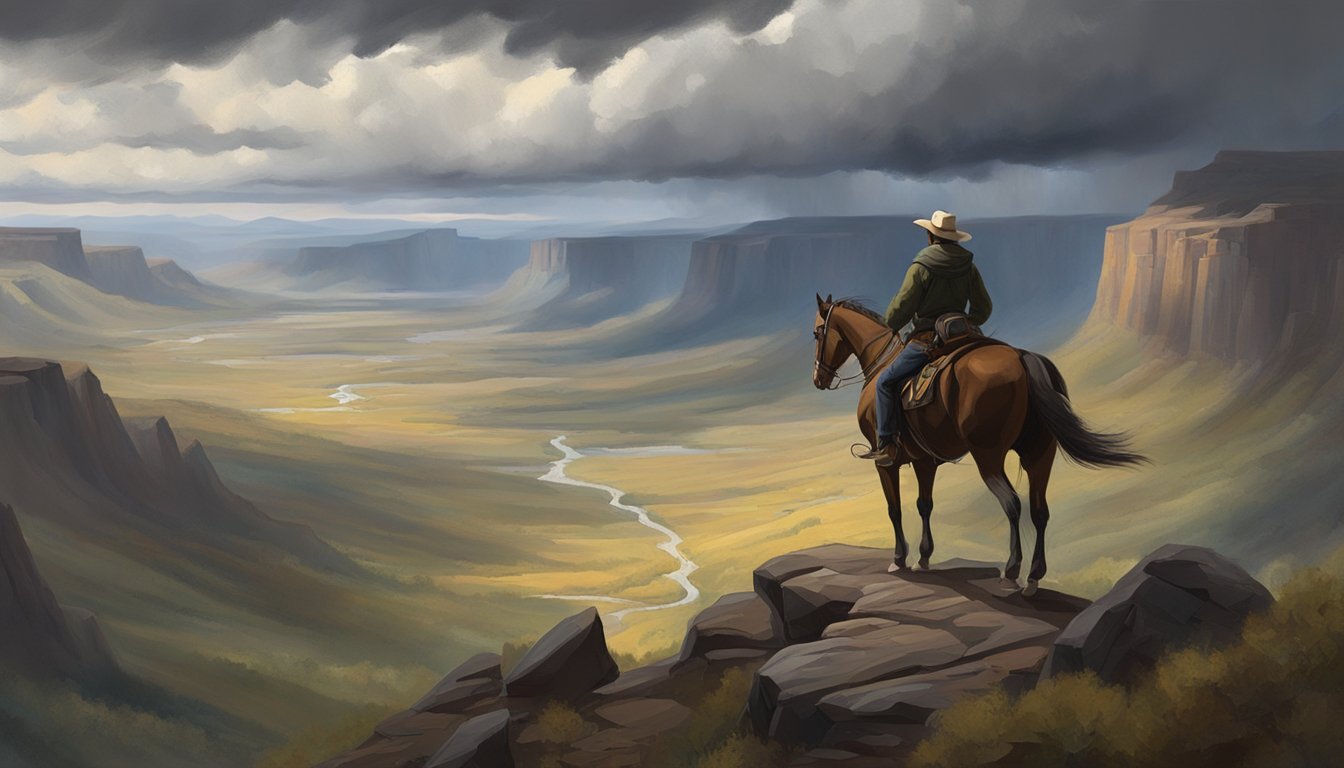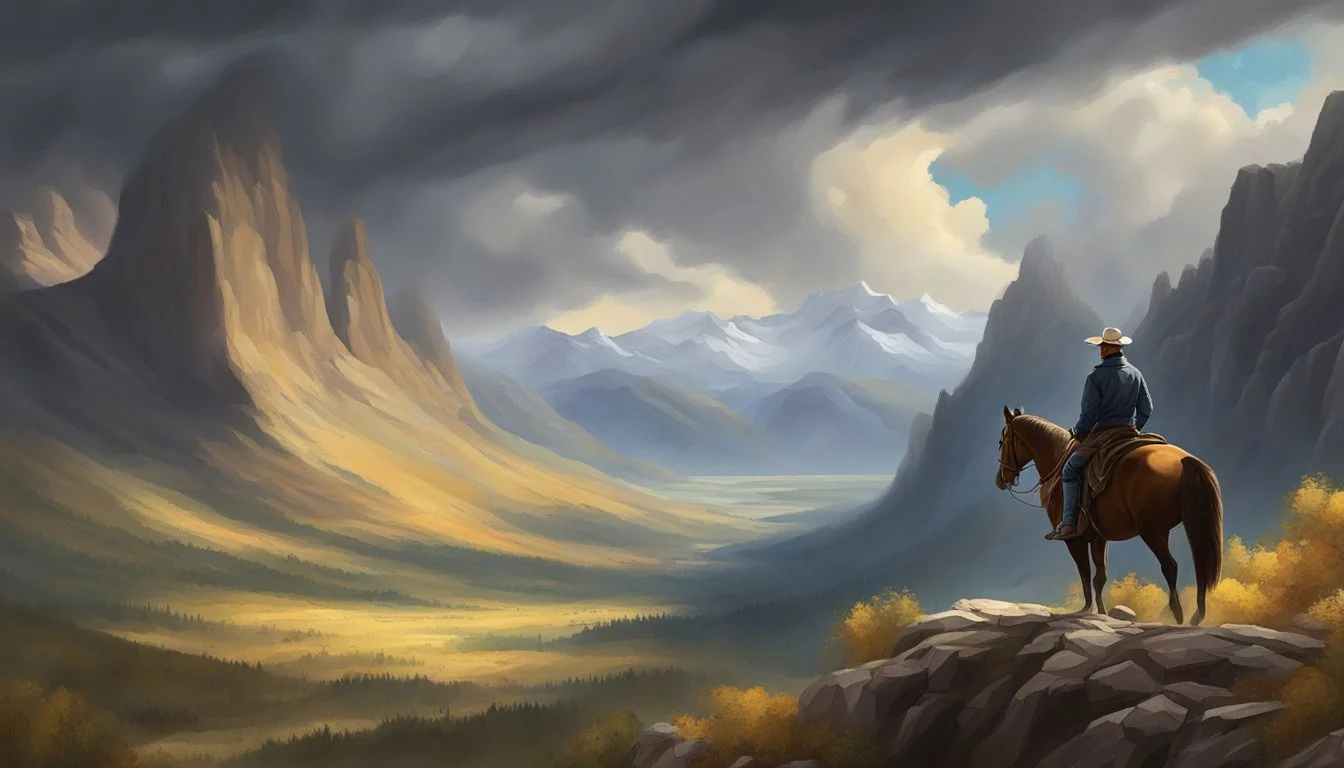Yellowstone Transforms the Western Hero: John Dutton Redefines Cowboy Culture
The Western genre has evolved significantly since the days of John Wayne's iconic cowboy portrayals. Yellowstone, created by Taylor Sheridan, brings a fresh perspective to the traditional Western hero archetype through its complex protagonist, John Dutton.
Kevin Costner's portrayal of John Dutton in Yellowstone represents a nuanced take on the classic Western hero. Unlike the straightforward good guys of old Westerns, Dutton is a morally ambiguous character who blurs the lines between right and wrong in his quest to protect his family's legacy. This modern interpretation adds depth and realism to the Western genre, reflecting the complexities of contemporary society.
Yellowstone's success has sparked a resurgence of interest in Western-themed entertainment. The show's ability to blend traditional Western elements with current issues and moral dilemmas has captivated audiences, proving that the genre can still resonate with modern viewers when reinvented thoughtfully.
The Evolution of the Western Hero
The Western hero has transformed significantly over time, reflecting changing societal values and storytelling approaches. This evolution spans from John Wayne's iconic portrayals to complex modern characters like John Dutton.
From John Wayne to Modern Figures
John Wayne epitomized the traditional Western hero - a rugged, principled man of few words. His characters often embodied ideals of honor, justice, and patriotism. Modern Western heroes, like John Dutton in Yellowstone, present a more nuanced image.
Dutton maintains some classic traits but faces contemporary challenges. He grapples with land disputes, family conflicts, and changing cultural norms. This shift reflects broader societal changes and audiences' desire for more complex narratives.
Characterization and Moral Ambiguity
Classic Westerns often portrayed clear-cut heroes and villains. John Wayne's characters typically represented unambiguous moral good. Modern Western heroes embrace shades of gray.
John Dutton exemplifies this trend. He fiercely protects his family and land, sometimes through questionable means. This moral ambiguity adds depth to his character and reflects real-world complexities.
Character development plays a crucial role in modern Westerns. Heroes evolve throughout their stories, facing internal conflicts and external pressures.
The Impact of John Wayne and Classic Westerns
John Wayne's influence on the Western genre cannot be overstated. His performances set the standard for decades of Western heroes to follow.
Classic Westerns established key tropes: the lone hero, frontier justice, and man versus nature conflicts. These elements persist in modern Westerns but are often subverted or reinterpreted.
Yellowstone draws from this rich tradition while updating it for contemporary audiences. It maintains the genre's focus on rugged individualism and land conflicts while exploring new themes like Native American rights and corporate power.
Setting the Scene: Cinematic Heritage
The Western genre's visual language has shaped audience expectations for decades. From iconic landscapes to distinctive filming techniques, these elements create an immersive world that transports viewers to the American frontier.
Visual Style of the West
Western films employ specific visual techniques to capture the essence of the frontier. Wide-angle shots showcase vast open spaces, emphasizing the isolation and freedom of the Old West. Low-angle shots of characters on horseback convey power and heroism.
Directors often use natural lighting to highlight the harsh realities of frontier life. Golden hour shots bathe scenes in warm hues, creating a nostalgic atmosphere. Dust and grit are ever-present, adding authenticity to the rugged setting.
Costume design plays a crucial role in establishing the Western aesthetic. Cowboys don weathered leather, wide-brimmed hats, and spurs. These visual cues instantly transport viewers to a specific time and place.
Monument Valley and Rugged Landscapes
Monument Valley stands as an iconic backdrop in Western cinema. Its distinctive red sandstone buttes have graced countless films, including John Ford's "Stagecoach" and "The Searchers."
The stark beauty of these landscapes serves as more than mere scenery. Rugged terrain reflects the challenges faced by Western heroes, becoming a character in its own right. Sweeping vistas emphasize the vastness of the frontier.
Films like "Once Upon a Time in the West" use these landscapes to create a sense of isolation and danger. Characters appear small against towering cliffs and endless deserts, highlighting their vulnerability.
Modern Westerns continue to draw inspiration from these classic locales. "Yellowstone" showcases Montana's breathtaking wilderness, carrying on the tradition of using landscape as a storytelling tool.
Taylor Sheridan's Vision
Taylor Sheridan reimagined the Western genre for contemporary audiences through his creation of Yellowstone. His approach blends classic Western themes with modern storytelling techniques and gritty realism.
Reviving the Genre for Modern Audiences
Sheridan breathed new life into the Western genre with Yellowstone. He crafted complex characters and intricate storylines that resonate with today's viewers. The show explores moral ambiguity and power dynamics within the Dutton family and their adversaries.
John Dutton, portrayed by Kevin Costner, anchors the series as a morally ambiguous patriarch. This character embodies the evolution of the Western hero for a new era. Sheridan's focus on authenticity and refusal to compromise his creative vision paid off.
Paramount Network took a chance on Sheridan's requests, allowing him to expand his creative world. This led to the development of the "Sheridan-verse" with Yellowstone at its center.
Neo-Westerns and Gritty Realism
Sheridan's approach to Yellowstone falls firmly in the neo-Western category. He incorporates elements of gritty realism and revisionist Western themes. This style sets the show apart from traditional Westerns of the past.
The series doesn't shy away from depicting the harsh realities of modern ranch life. It tackles contemporary issues like land disputes, political corruption, and family dynamics. Sheridan's writing puts characters into ethically challenging situations.
Kevin Costner's portrayal of John Dutton exemplifies this approach. The character faces morally ambiguous choices that blur the lines between hero and anti-hero. This complexity appeals to viewers looking for more nuanced storytelling in the Western genre.
Cultural and Societal Reflection
Western films and television shows shape American values and cultural perceptions of the West. They reflect evolving societal attitudes while reimagining frontier mythologies for modern audiences.
Western Films and American Values
Western films have long mirrored and influenced American values. Early Westerns celebrated rugged individualism, frontier justice, and manifest destiny. These themes resonated with post-World War II audiences seeking clarity in a changing world.
As society evolved, so did Western narratives. The 1960s and 70s saw the rise of revisionist Westerns, questioning traditional hero archetypes and exploring moral ambiguity. Films like "The Wild Bunch" and "McCabe & Mrs. Miller" challenged romanticized notions of the Old West.
Modern Westerns continue this trend. "Yellowstone" examines complex issues like land rights, family loyalty, and the clash between tradition and progress. John Dutton embodies both classic Western values and contemporary conflicts.
Cultural Impact and the American West
The Western genre has significantly shaped cultural perceptions of the American West. It has created enduring symbols and mythologies that persist in the national consciousness.
Iconic images of cowboys, vast landscapes, and frontier towns have become shorthand for American ideals of freedom and opportunity. These depictions, while often romanticized, have influenced tourism, fashion, and even regional identities.
"Yellowstone" updates this cultural impact for the 21st century. It explores modern challenges facing the West, such as land development pressures and changing demographics. The show's popularity has sparked renewed interest in ranch life and Western aesthetics.
By reimagining Western tropes, "Yellowstone" keeps the genre relevant to contemporary audiences. It connects past and present, allowing viewers to reflect on the evolving nature of American identity and values.
The Dutton Family Saga
The Dutton family's multi-generational story forms the backbone of Yellowstone's narrative, exploring themes of legacy, power, and survival in the modern American West. Their saga intertwines personal struggles with broader conflicts over land and resources.
Leadership and Patriarchal Themes
John Dutton stands as the undisputed patriarch of the Dutton family, overseeing the vast Yellowstone Ranch with an iron will. His leadership style blends traditional ranching values with ruthless business acumen.
John's children - Beth, Kayce, and Jamie - each grapple with their roles within the family hierarchy. Beth's fierce loyalty and sharp mind make her a formidable ally in protecting the ranch. Kayce struggles to balance his duties to the family with his own path.
The patriarchal structure of the Duttons mirrors classic Western archetypes, but with added complexity. John's authority is both respected and challenged, creating tension within the family dynamic.
Land Disputes and Family Dynamics
Land lies at the heart of the Dutton family's conflicts. The Yellowstone Ranch faces constant threats from developers, Native American tribes, and government entities seeking to claim parts of their vast holdings.
These external pressures intensify internal family strife. Beth's aggressive tactics in defending the ranch often clash with Kayce's more diplomatic approach. Jamie's ambitions sometimes put him at odds with his father's vision for the family legacy.
The Duttons' unity is repeatedly tested by land disputes. Their responses reveal deep-seated family loyalties and individual motivations. Each conflict forces family members to choose between personal desires and the collective good of the Dutton name and land.
Ranch Life and the New Frontier
Ranch life in Montana embodies the spirit of the American West, blending traditional values with modern challenges. The iconic landscapes and rugged lifestyle continue to captivate both locals and visitors.
The Significance of the Ranchers
Ranchers play a vital role in Montana's economy and culture. They manage vast tracts of land, preserving open spaces and wildlife habitats. Cattle ranches form the backbone of the state's agricultural industry, contributing significantly to food production.
These landowners face numerous challenges, from unpredictable weather to fluctuating market prices. Many ranches have been passed down through generations, creating a deep connection to the land and a sense of stewardship.
Ranchers often find themselves at the forefront of environmental conservation efforts. They work to maintain healthy grasslands and protect water resources, balancing production needs with sustainability.
Montana and Tourism
Montana's breathtaking scenery and outdoor recreational opportunities attract millions of visitors annually. The state's tourism industry has grown significantly, offering economic diversification for rural communities.
Dude ranches provide unique experiences for tourists, allowing them to immerse themselves in Western culture. Visitors can participate in cattle drives, horseback riding, and other traditional ranch activities.
National parks like Yellowstone draw crowds seeking natural wonders and wildlife encounters. This influx of tourists creates both opportunities and challenges for local ranchers, who must adapt to changing land use patterns and increased traffic.
Frontier Justice and Rancher Values
The concept of frontier justice still resonates in Montana's ranching communities. Self-reliance and a strong sense of personal responsibility remain core values among ranchers.
Disputes over land use, water rights, and property boundaries often arise. Ranchers may feel compelled to take matters into their own hands when formal legal processes seem inadequate or slow.
This independent spirit can clash with modern governance structures. Ranchers frequently find themselves navigating complex regulations while trying to maintain their traditional way of life.
The romanticized notion of the cowboy code continues to influence ranch culture. Honesty, hard work, and loyalty are prized traits, shaping interactions within tight-knit rural communities.
Influence on and Portrayal of Indigenous Peoples
Yellowstone brings a fresh perspective to Native American representation in Western media. The show explores complex relationships between indigenous communities and other characters while addressing modern challenges faced by Native Americans.
Native American Characters and Communities
Thomas Rainwater, played by Gil Birmingham, emerges as a central Indigenous character in Yellowstone. As chairman of the fictional Broken Rock Reservation, he confronts the Dutton family's land control, adding depth to the show's portrayal of Native American leaders.
The series depicts the Broken Rock Indian Reservation, offering glimpses into contemporary reservation life. This setting allows for exploration of Indigenous culture, traditions, and socioeconomic issues.
Yellowstone strives for authenticity in its Native American characters, avoiding stereotypes often seen in older Westerns. The show presents complex, multidimensional Indigenous individuals with their own motivations and conflicts.
Modern Challenges and Land Rights
Land rights form a crucial element of Yellowstone's narrative, reflecting real-world tensions between Native American tribes and non-Indigenous landowners. The series highlights ongoing legal battles and negotiations over ancestral territories.
The show addresses contemporary issues facing Indigenous communities, such as economic development, preservation of cultural heritage, and environmental concerns. These storylines provide insight into the modern challenges of Native American life.
Yellowstone explores the impact of historical injustices on present-day Indigenous peoples. References to events like the Indian Removal Act and its consequences add historical context to current land disputes portrayed in the series.
Modern Tropes and Transformations
Yellowstone breathes new life into the Western genre by incorporating contemporary themes and complex characters. The show blends traditional cowboy elements with modern challenges, creating a unique and compelling narrative.
Political Power and Corruption
John Dutton wields significant political influence in Montana, using his connections to protect his land and interests. His dealings with government officials and business tycoons reveal a web of corruption and backroom deals.
Dutton's tactics often blur ethical lines, showcasing the murky world of modern politics in rural America. He manipulates local elections, leverages personal relationships, and employs intimidation to maintain his grip on power.
The series explores how wealth and land ownership translate into political clout. It highlights the tension between preserving traditional ways of life and embracing progress, often at the cost of moral compromise.
Morally Ambiguous Characters
Yellowstone's characters defy simple categorization as heroes or villains. John Dutton himself embodies this complexity, protecting his family and legacy while engaging in questionable actions.
Beth Dutton, John's daughter, exemplifies moral ambiguity. Her fierce loyalty to family contrasts with her ruthless business tactics and personal demons. Rip Wheeler, the ranch foreman, balances unwavering dedication with a capacity for violence.
The show presents antagonists with understandable motivations, challenging viewers to question their own allegiances. This nuanced approach adds depth to the narrative and reflects the complexities of real-world conflicts.
Redemption and Transformation
Characters in Yellowstone often seek redemption for past misdeeds or struggle to change their ways. Kayce Dutton's journey from estranged son to potential heir highlights this theme.
Jamie Dutton's complex relationship with his adoptive family and biological father drives his quest for identity and acceptance. His choices reflect the internal battles many characters face.
The series explores how environment and circumstances shape individuals, allowing for growth and change. It shows that redemption is rarely straightforward, often involving difficult choices and sacrifices.
Broadcasting Legacy: Yellowstone's Reach
Yellowstone has reshaped the landscape of western-themed television, captivating audiences and setting new standards for the genre. The show's impact extends beyond its storylines, influencing both the industry and viewers' perceptions of the modern American West.
Paramount Network and Modern Western TV
Yellowstone's success on Paramount Network has revitalized interest in western-themed television. The show consistently draws high ratings, attracting millions of viewers each episode. This popularity has encouraged the development of similar content across various platforms.
Paramount Network has capitalized on Yellowstone's success by expanding the franchise. Spin-off series like "1883" and "1923" explore different eras of the Dutton family history. These shows have further solidified Paramount's position as a leader in modern western TV programming.
Other networks and streaming services have taken note, increasing production of western-themed content. This trend has led to a renaissance of the genre, adapting classic western themes for contemporary audiences.
Homage to the Old West and Tributes
Yellowstone pays tribute to classic westerns while updating the genre for modern viewers. The show incorporates iconic western imagery such as vast landscapes, horseback riding, and cattle drives. These elements serve as a visual homage to the films and TV series that defined the genre.
The character of John Dutton, portrayed by Kevin Costner, embodies traits of traditional western heroes. His rugged individualism and commitment to preserving his land echo the values of classic western protagonists. This characterization bridges the gap between old and new western archetypes.
Yellowstone also acknowledges real-world western figures and events. References to historical ranchers, Native American tribes, and significant moments in western history are woven into the narrative. These nods to authenticity enhance the show's connection to the rich legacy of the American West.







